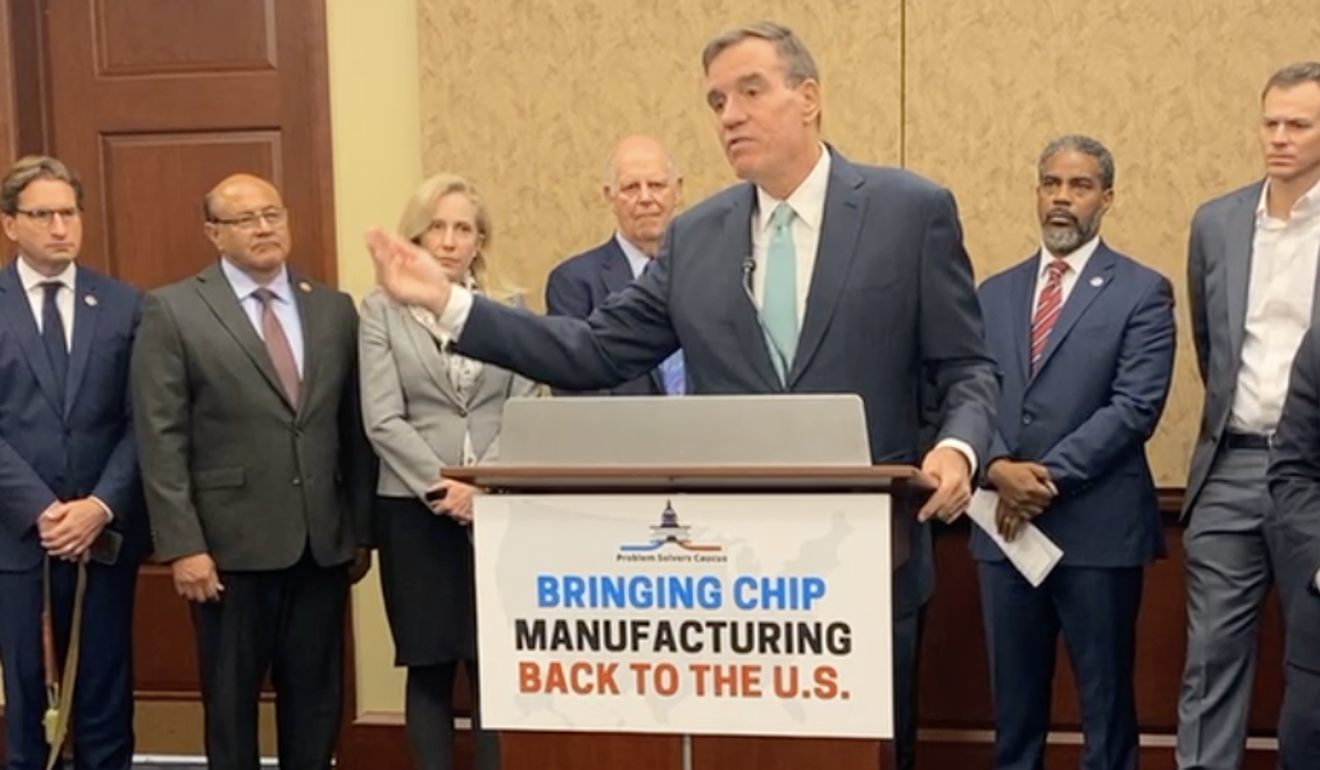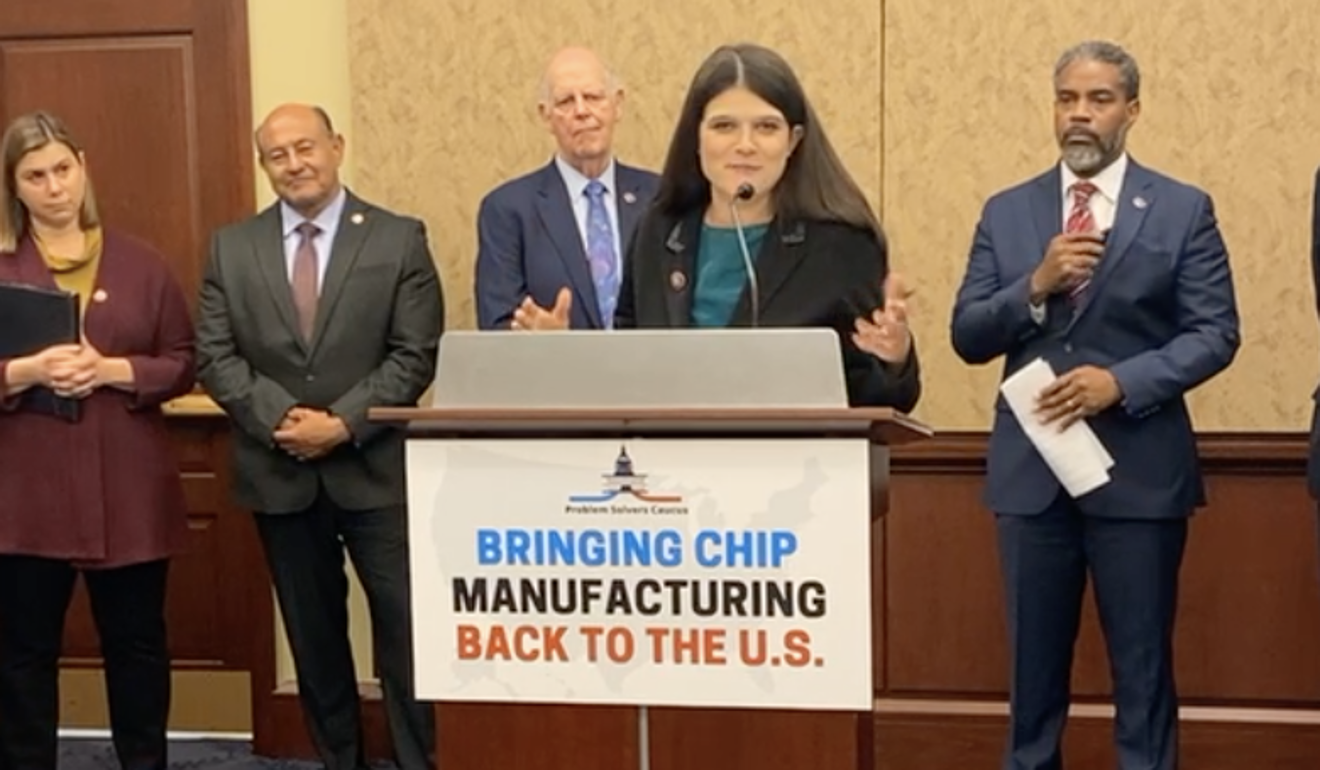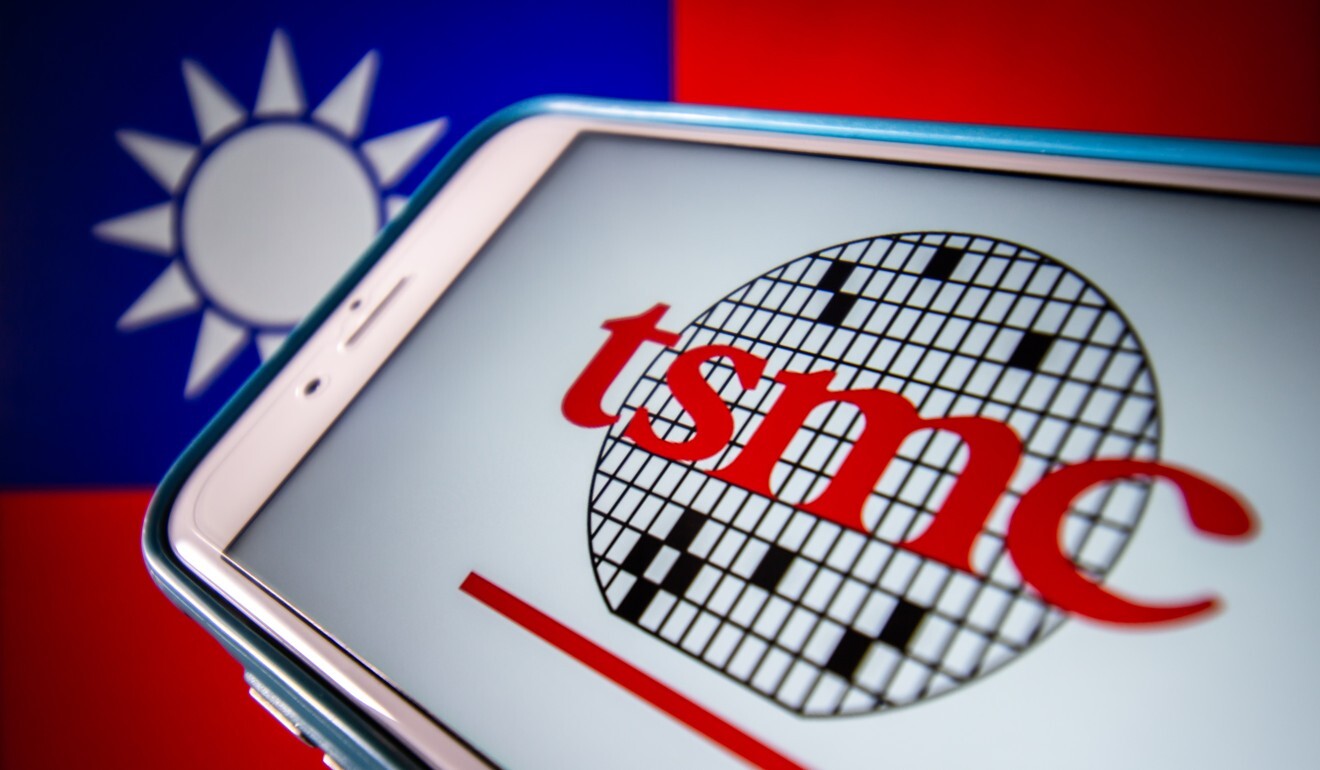
US lawmakers, citing China, press for US$52 billion in subsidies to build chip factories in America
- Bipartisan ‘Problem Solvers Caucus’ raises threat of China’s competitiveness, and the possibility of attack on Taiwan, as reasons to act
- Senate has already passed its bill but the House of Representatives has yet to vote on its version
A bipartisan group of US lawmakers – most of them sounding alarms over China’s competitive threat – called on Thursday for passage of a bill to provide billions of dollars in funding for domestic production of semiconductor chips.
The Problem Solvers Caucus – comprising 58 lawmakers in both congressional chambers, evenly split between Republicans and Democrats – cited mainland China’s growing semiconductor production capacity and the possibility that Beijing might invade Taiwan as urgent incentives for the House of Representatives to pass its version of legislation meant to boost American chip output.
“We need to build seven to 10 new facilities across the America in order to maintain our leading research and development. China’s putting up 150,” he said.

The senator also cited Taiwan’s TSMC as the world’s leading chip maker, “and probably the most cutting-edge company of all” in the industry.
America’s share of global semiconductor manufacturing capacity has fallen to 12 per cent from 37 per cent in 1990, according to the Semiconductor Industry Association, which attributed the decline to stronger chip manufacturing incentives offered in other countries relative to the US.
The trade group also said that federal investments in semiconductor research and development has held flat as a share of GDP.
06:01
There’s a global semiconductor shortage and this is why it matters
Representative Joshua Gottheimer, a New Jersey Democrat who co-chairs the caucus, warned of catastrophic consequences for supply chains that are already badly strained by global chip shortages.
If the People’s Liberation Army “decides to go into Taiwan tomorrow, what are we going to do about it?” Gottheimer asked. “What are we going to do when China supplies a huge portion, or controls a huge portion, of the supply chain network?”
Representatives Haley Stevens and Elissa Slotkin, both Democrats of Michigan, noted that the current shortage of chips had already taken a toll on the automotive industry.

“The reality right now in Michigan is we‘ve got cars sitting in lots that are nearly almost produced except that they’re missing … the particular types of chips that go into automobiles,” Stevens said. “We hear the automotive manufacturers say right now, well, it’s winter, you want that heated seats, heated steering wheels? We can’t do it right now.”
Senator John Cornyn, Republican of Texas, started the news conference by underscoring the bipartisan momentum building around the chip subsidies, a key component of the USICA.

The caucus’s appeal came a day after lawmakers on the Congressional-Executive Commission on China (CECC) were warned in a hearing that the US was falling behind in the semiconductor industry partly because US capital is helping to finance China’s chip boom.
Last week, an investigation by The Wall Street Journal found that US investors and companies had participated in 58 deals with Chinese semiconductor companies from 2017 to 2020, a sharp uptick that has prompted concern among administration officials.
“Without a doubt, the problem of major multinational corporations and American corporations investing in the Chinese semiconductor industry – which is heavily state-backed, which has the enormous support of various state coalitions and bodies within China – is a major threat to both American industrial and security interests,” Geoffrey Cain, author of The Perfect Police State, told the commission.
Additional reporting by Owen Churchill

